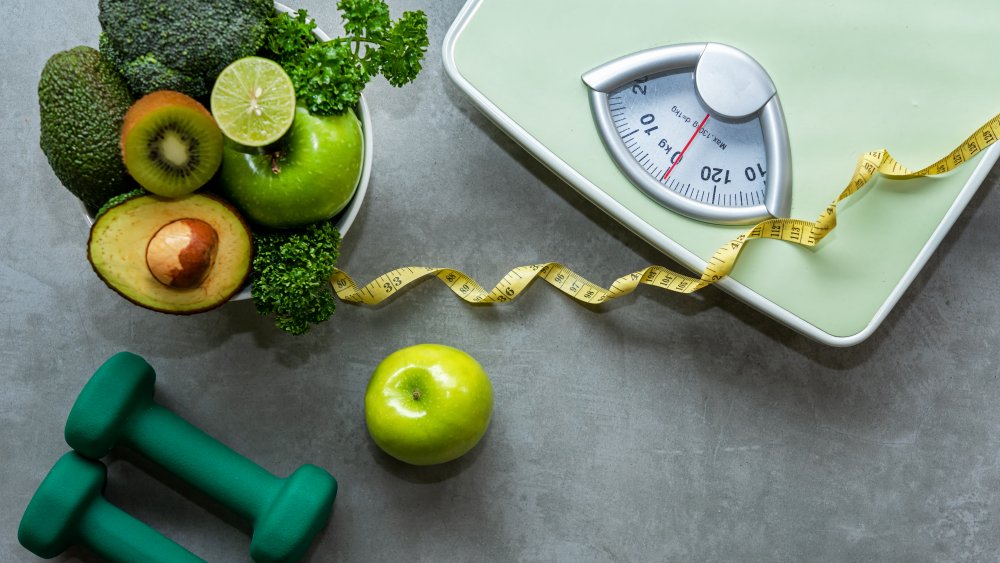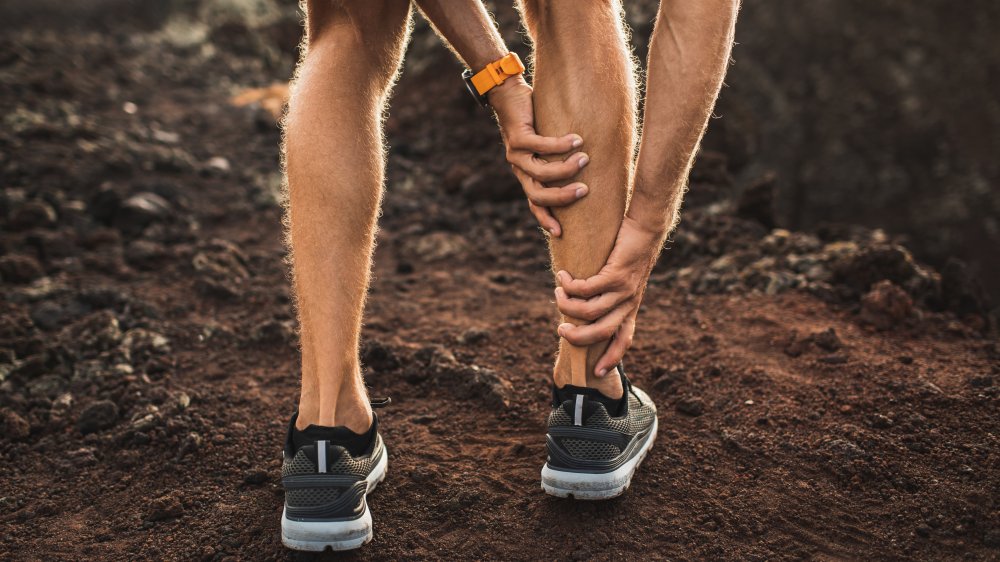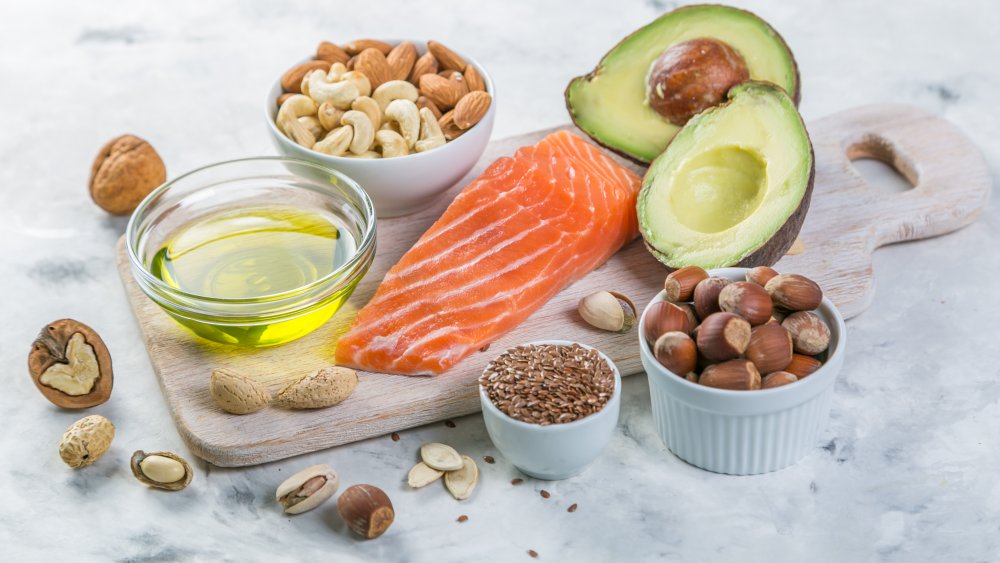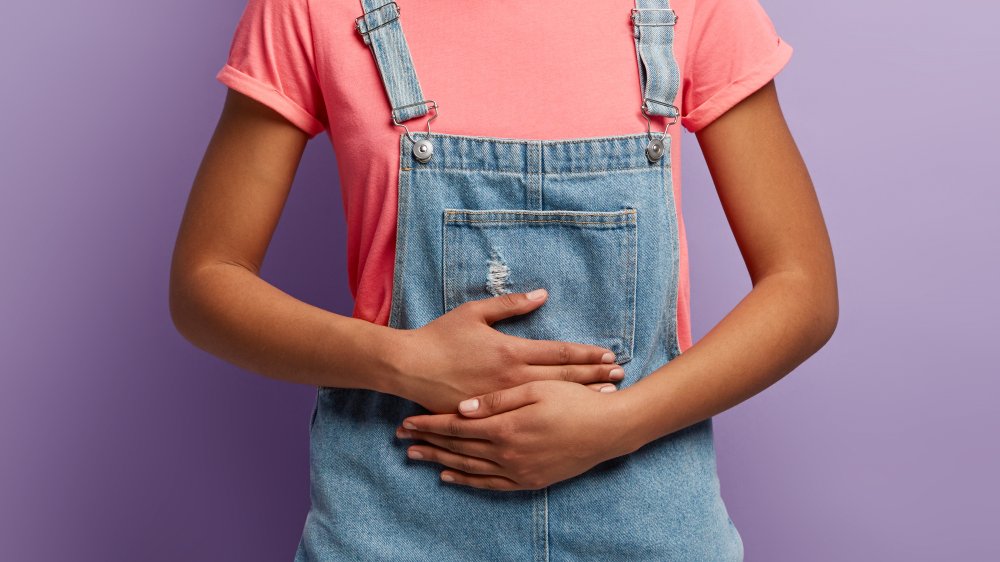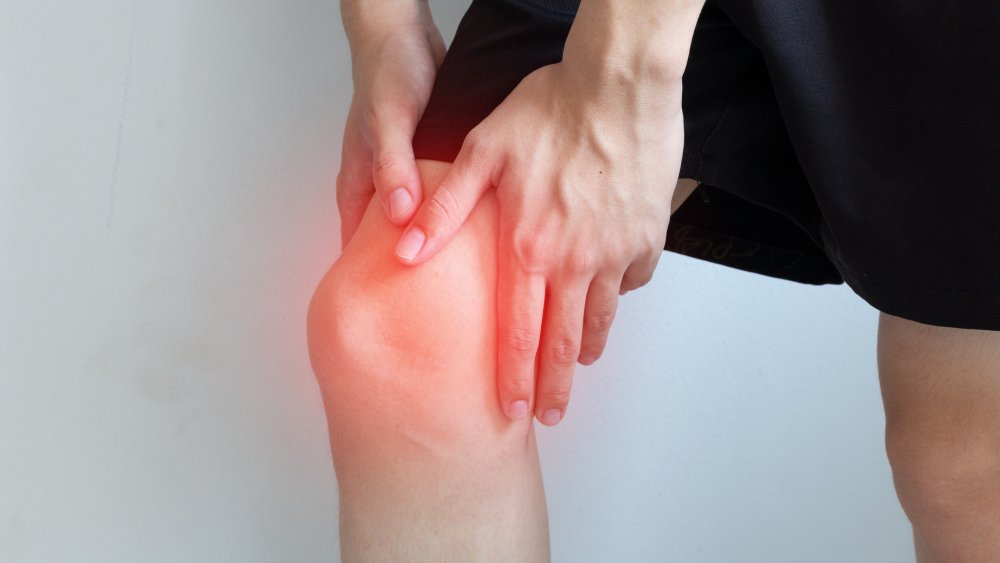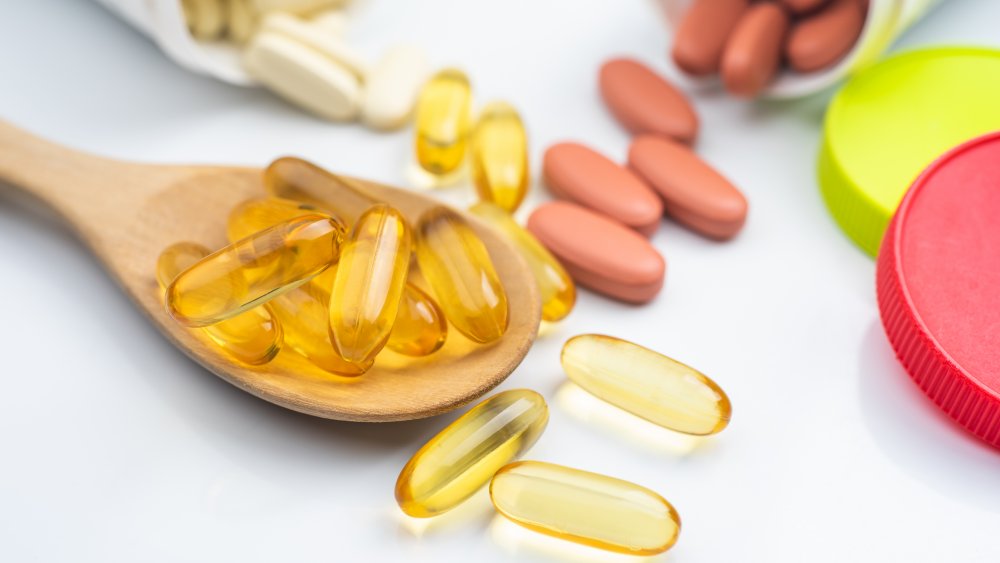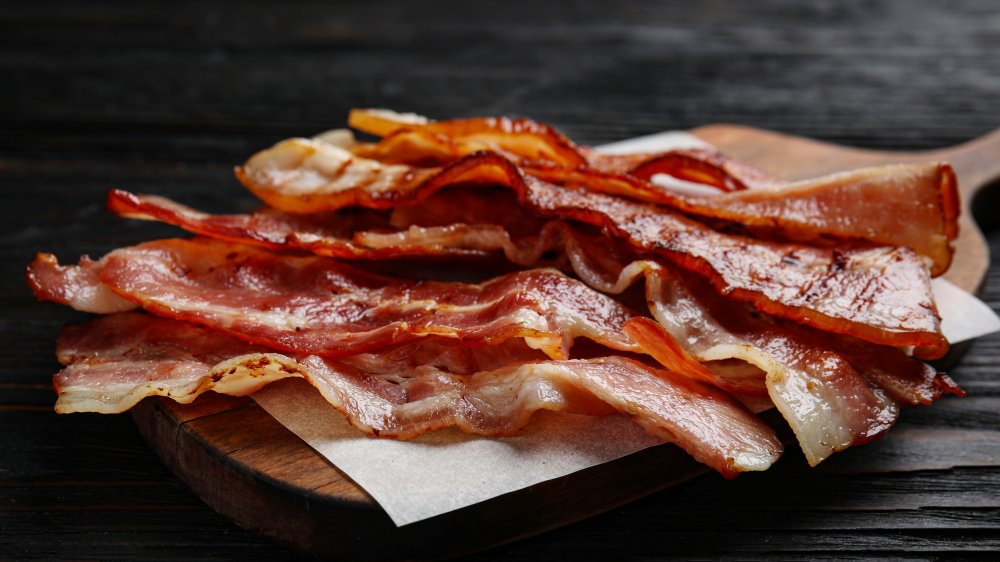Why Your Body Won't Be The Same After You Start The Keto Diet
Fun fact: the ketogenic or "keto" diet was actually formed back in the 1920s to treat children with epilepsy (a condition that causes seizures). The diet didn't become trendy until many decades later, when individuals turned to it for weight loss. If you're unfamiliar, the keto diet consists of low carb intake, high fat, and moderate amounts of protein, according to Healthline. When on the diet, fat makes up around 70 to 80 percent of your total calories and you're limited to around 20 to 30 grams of carbs per day.
Due to the limitations that comes along with going keto, many experts are a bit wary to back it up. Felicia D. Stoler, a registered dietitian, told Today's Dietitian that, at least for her personally, "diet planning is about lifestyle and feeling that food choices are not restricted."
On the other hand, registered dietitian Kristen Mancinelli is a keto advocate and spoke with Today's Dietitian and revealed that "it promotes significant weight loss because the body is constantly breaking down stored fat to meet its energy needs." Following this diet has both pros and cons for your health, research shows. Here are some body changes you might notice if you decide to start the keto diet.
The keto diet puts your body into nutritional ketosis
Your body uses carbohydrates (glucose) as its main energy source. When you follow a keto lifestyle, you eat limited carbs, which then depletes glycogen stores (the stored form of glucose). This causes your body to make changes in order to continue to be fueled, according to a 2020 report published in StatPearls.
There are two changes that occur: gluconeogenesis and ketogenesis. Gluconeogenesis is the process by which your body creates glucose primarily from non-carbohydrate sources (usually lactic acid, glycerol, and certain amino acids). This can only be sustained for a short period of time because, as your glucose levels continue to drop, there comes a point when your body is not able to keep up with how much it needs. This is when ketogenesis comes into play.
Ketogenesis gives the body another source of energy called ketone bodies. As long as the ketogenic diet is sustained, your body will use them as its primary energy source when glucose is unavailable. This metabolic state is called "nutritional ketosis."
You may lose weight quickly when starting the keto diet
The keto diet draws many people in. Not only because it's fairly straightforward, but because weight loss tends to happen fast. The number on the scale drops so quickly that it'll appear the diet is working but, in reality, most of this is just water weight.
Carol Johnston, professor and associate director of the nutrition program at Arizona State University, explained to Medical Xpress, "In the first few days after starting the keto diet, a person can experience a significant loss of water weight." She continued, saying, "When carb intake is restricted for a few days, glycogen stores in the muscle are reduced. Glycogen is responsible for water retention, so when its levels fall, so do our water levels."
It may be more beneficial to put the scale aside and measure your weight loss progress in ways that better monitor fat loss/gain. This can include taking body measurements, investing in a body fat scale, or checking with your local fitness center or medical facility to get a professional scan or test done.
You may come down with the keto flu
One complication of starting up the keto diet is a little side effect that's referred to as the "keto flu." The symptoms of the keto flu can show themselves shortly after starting the diet, but it doesn't necessarily happen to everyone. And don't worry, it's not the actual influenza. Symptoms of the keto flu that you may notice include headaches, brain fog, fatigue, nausea, difficulty sleeping, and more.
According to Harvard Medical School, the reason behind this keto flu is unknown. Maybe it's because of a carb withdrawal, changes in the gut microbiome, or an immune reaction. Either way, it's usually after individuals have done some "cleaning up" of their diet and removed highly processed and sugar-filled foods.
No worries! If you are one of the unlucky ones who experiences keto flu, it tends to cease pretty quickly. In the meantime, you can stay committed to your plan and drink plenty of water. Within a week you should get your energy levels back and you may even feel better than you did before.
Muscle cramps could arise shortly after starting the keto diet
Nothing like a good ol' leg cramp to start your day, right? Unfortunately, you may be more likely to experience muscle cramps when you first start the keto diet. This makes sense since you're going to lose a lot of water at the outset of this diet. And with that comes dehydration and sometimes muscle cramps.
A 2018 review published in PeerJ revealed that muscle cramps can occur when following a keto diet due to increased urinary sodium, potassium, and water loss in response to lowered insulin levels. These cramps are more common between the first and fourth days of starting keto.
You can keep those cramps at bay by drinking plenty of water, stretching and massaging your muscles, as well as getting in electrolytes (such as sodium, calcium, and potassium). Sports drinks could be a good option to stay hydrated and provide electrolytes. Just be cautious if you decide to go that route, as many sports drinks can contain high amounts of sugar which will kick you out of ketosis.
Insulin sensitivity may improve on the keto diet
Worldwide, 39 percent of individuals are overweight and 13 percent are obese, according to the World Health Organization. This can lead to metabolic syndrome, a systemic inflammatory state that increases your risk of heart disease, stroke, and type 2 diabetes, a 2019 review published in Current Nutrition Reports revealed. Many symptoms come along with metabolic syndrome, but one in particular is insulin resistance.
Insulin is a hormone that helps to control the amount of sugar that is lingering in your blood. When you are insulin resistant, your cells don't respond as they should to insulin, which doesn't allow glucose to enter your cells as easily. This creates a buildup of sugar in your blood and can eventually lead to type 2 diabetes.
The review found that compared to a high-carb diet in individuals with insulin resistance, a very low carbohydrate keto diet had less insulin released in response to eating a meal. That, in turn, required less insulin needed to achieve and maintain lower blood sugar. Being on a low carbohydrate keto diet can result in greater insulin sensitivity, which is beneficial for reaching a normal blood sugar level. This could allow diabetic individuals to decrease diabetic meds usage, as Healthline explained.
You may notice digestive issues when starting the keto diet
Our gut contains trillions of microbial cells and thousands of bacterial species. This makes up our own personal gut microbiota, which plays a huge role in many aspects of human health and disease. A change in your diet can transform your gut microbiome — either positively or negatively. A 2019 study published in Genes states that a high-fat diet (specifically saturated fat) negatively affects the gut microbiome. This can create inflammation and lead to indigestion or diarrhea.
The plus side is that there are more than just saturated fatty acids to choose from. Opting for healthy fats in the form of polyunsaturated and monounsaturated can keep your microbiota healthy and normal, while still being able to adhere to the keto diet.
However, fats aren't the only thing able to affect digestive health. Often, artificial sweeteners are used on the keto diet to replace natural sugars (since they are carb-free). Evidence has shown, though, that artificial sweeteners could have a negative impact on gut health by disrupting the structure and function of gut microbiota.
You're going to want to stock up on mints when starting the keto diet
With the keto diet comes keto breath. It can smell fruity or smell bit like nail polish remover. It can also leave a metallic taste in your mouth. You're probably wondering why. A 2014 article published in the International Journal of Environmental Research and Public Health revealed how ketone bodies (the fuel the body uses when in ketosis) contains a compound called acetone. Nail polish remover also contains acetone, which is why your breath can wind up smelling like a nail salon.
This breath isn't unusual on the keto diet; in fact, it proves that you are in ketosis. The keto breath will start to dwindle as your body adjusts to your new way of eating. Depending on the individual, that could be a few days or a few weeks.
You can offset the stink by practicing good oral hygiene or keeping mints and gum handy. Be aware that they can still contain sugar, and that can impact your carb intake if you're consuming too many. Sugar-free options may be the way to go.
The keto diet may sharpen your memory
Although most people may turn to the keto diet for weight loss, the diet can impact the brain in positive ways. There is a strong relationship between insulin reduction and memory improvement.
A 2012 study published in Neurobiology of Aging tested both a high carbohydrate or low carbohydrate diet on two groups adults aged 23 or older with mild cognitive impairment. After six weeks, individuals on the low carbohydrate diet had improved verbal memory performance. The study explained how ketone metabolism can protect hippocampal neurons. Your hippocampus is a complex structure that sits deep in the temporal lobe and is associated with long and short-term memories.
Compared to glucose metabolism, ketone metabolism also lowers oxidative stress, has greater antioxidant capacity, and decreases inflammation. Oxidative stress and inflammation are both factors that can contribute to neurodegeneration (the loss of neurons in the brain). This can help prevent neurodegenerative diseases such as Alzheimer's and Parkinson's disease.
The keto diet may help your inflammation
When your body fights against things that try to harm it, such as infections or toxins, an inflammatory response kicks in. This response is triggered by your immune system in an attempt to heal itself. Unfortunately, inflammation can be chronic where your body is constantly on alert. This can lead to a negative impact on your tissues and organs which may play a role in certain conditions such as cancer or asthma.
Certain foods can actually increase inflammation in some people, but there are a good handful of foods that have anti-inflammatory properties. Processed foods and refined carbs (such as white bread or pastries) can trigger inflammation whereas fatty fish (like salmon), olive oil, and nuts contain antioxidants and polyphenols that battle inflammation.
The keto diet encourages consumption of many anti-inflammatory foods and few inflammatory foods. A 2018 review published in Antioxidants revealed that subjects who were fed a low carb/keto diet had significantly decreased inflammatory markers.
The keto diet may not provide you with enough nutrients
The keto diet can be considered a restrictive diet since you are almost completely eliminating carbohydrate-rich foods. Foods that contain healthy carbs (such as some vegetables, fruit, grains, and milk) also supply our bodies with important micronutrients.
One study published in Epilepsia revealed the importance of keeping track of certain micronutrients when going keto, since major food groups are being restricted. The higher the ratio of fat compared to protein and carbs means the less nutrient dense your diet is. For example, the study explained that a keto diet with a ratio of 4:1 (approximately 80 percent fat and 20 percent protein and carbs) only met three of the 28 Dietary Reference Intakes (DRIs) they evaluated. The more liberal the ratio (aka the more protein/carbs you allow), the more DRIs that are met. DRIs are established in order to meet the needs of healthy people.
Calcium, vitamin D, phosphorus, and magnesium are four important micronutrients that can be hard to get enough of when you're following the keto diet. Before you turn to supplements to meet your daily needs, though, have a discussion with your doctor to ensure it's safe and to get the proper dosage.
You may get kidney stones on the keto diet
A typical keto diet is chock full of fatty foods, but protein consumption also tends to be more elevated during keto. The issue, however, is that too much animal protein can lead to kidney stones.
Kim Yawitz, registered dietitian, told Everyday Health, "If you're going to do keto, there's a better and a worse way to do it." She continued, saying, "Loading your plate with meats, and especially processed meats, may increase your risk for kidney stones and gout."
Gout is a form of arthritis that is brought about by too much uric acid hanging out in the body. Yawitz explained that "high intake of animal proteins makes your urine more acidic and increases calcium and uric acid levels." She added, "The combination makes you more susceptible to kidney stones, while high uric acid can increase your risk for gout." Supplementing with potassium citrate could possibly decrease the likelihood of kidney stones, but always have a conversation with your healthcare provider before doing so.
You may feel less hungry on the keto diet
When you eat food, it makes its way through your digestive tract to be absorbed and utilized by the body. Not all foods are the same, though; certain enzymes need to be used and the process for one food can be longer or shorter than another. Carbs tend to spend the least amount of time getting broken down by the stomach. Protein takes a little bit longer, and fat takes the longest. Since the keto diet is higher in fat and protein, you'll find yourself staying full for a longer period of time.
A 2014 review and meta-analysis published in Obesity Reviews investigated how ketogenic low-carbohydrate diets (KLCDs) affected appetite. After evaluating many studies, individuals who adhered to KLCDs were found to be "less hungry and had a reduced desire to eat."
In order to achieve this satiation, choose more whole foods like nuts and fewer keto snacks that may be filled with artificial sweeteners.
Your cholesterol could skyrocket on the keto diet
Although consuming fats is the way to go when on the keto diet, not all fats are created equally. If you're eating saturated fats and trans fats when switching to keto, you should know that both kinds contribute to raising bad cholesterol levels and lowering good. Your "good" cholesterol is called HDL and your "bad" is called LDL. Having high amounts of LDL and low amounts of HDL raises your risk of heart disease and stroke.
Kim Yawitz, registered dietitian, said in an interview with Everyday Health that "the quality of fat counts." She went on to add, "There's a big difference nutritionally between bacon and almonds. As much as possible, people set on the keto diet should emphasize plant-based, unsaturated fats like nuts, seeds, olive oil, and avocado, which have even been shown to protect the heart."
If you're already dealing with high cholesterol or are at greater risk for heart disease, check with your doctor before you commit to following the keto diet.
The keto diet may improve type 2 diabetes but worsen type 1 diabetes
The keto diet isn't for everyone. The metabolic changes that occur once you're in ketosis can help manage some health conditions but could be unsafe for others.
Type 2 diabetes is a prevalent condition that can benefit from the keto diet under careful direction from a doctor or dietitian. "The root cause of type 2 diabetes is insulin resistance," said Taylor Moree, registered dietitian, in an interview with Everyday Health. "The keto diet lowers carb intake to the point that blood glucose levels drop," she continued. "With that, less insulin is produced and used by the body, burning fat and potentially improving insulin sensitivity."
On the flip side, individuals who have type 1 diabetes should be wary before jumping on the keto train. People with type 1 diabetes are insulin dependent and it can be dangerous for such ones to experience low blood sugar, according to Moree. Unfortunately, it's all too easy for this to happen when combining insulin with severely restricted carbs.



